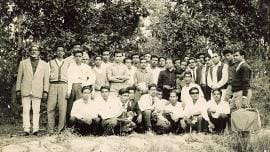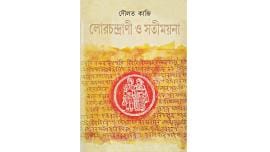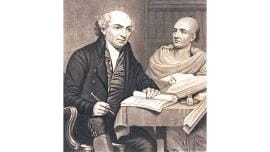What goes on in the minds of multilinguals
21 February 2023, 14:45 PM
SHOUT
How I learned the magnificence of Bangla through lyrics translation
21 February 2023, 07:45 AM
SHOUT
Bengali as a vehicle of abstract thought
20 February 2023, 18:00 PM
Amar Ekushe 2023
Remembering Zahir Raihan: A Language Activist and Trailblazer
20 February 2023, 18:00 PM
Amar Ekushe 2023
An unexplored facet of the language movement’s historiography
20 February 2023, 18:00 PM
Amar Ekushe 2023
Tale of Bangla College: Pioneering use of Bengali as a medium of higher education
20 February 2023, 18:00 PM
Amar Ekushe 2023
Abdul Karim Sahitya Bisharad and Bengali Punthi Sahitya
20 February 2023, 18:00 PM
In Focus
The missionaries and the evolution of the Bengali language
20 February 2023, 18:00 PM
Amar Ekushe 2023
Bengali as a vehicle of abstract thought
Buddhadeva Bose in one of his essays expresses the opinion that Bengali prose, “in less than a couple of centuries has achieved remarkable maturity.”
20 February 2023, 18:00 PM
Remembering Zahir Raihan: A Language Activist and Trailblazer
In 1954, when I was admitted into the Dhaka University Bengali honours course after an interview with Dr Muhammad Shahidullah, a host of talented fellows were to be my friends in the next four years.
20 February 2023, 18:00 PM
An unexplored facet of the language movement’s historiography
It is February 2002, the month of the fiftieth anniversary of our language movement.
20 February 2023, 18:00 PM
Tale of Bangla College: Pioneering use of Bengali as a medium of higher education
On September 1, 1947, a group of students and faculty members at Dhaka University established Tamaddun Majlish, a cultural organization aimed at promoting the Bengali language.
20 February 2023, 18:00 PM
The missionaries and the evolution of the Bengali language
In his foreword to Bernard Cohn’s magisterial book Colonialism and its forms of knowledge, Nicholas Dirks commented that for the British, in India,
20 February 2023, 18:00 PM












